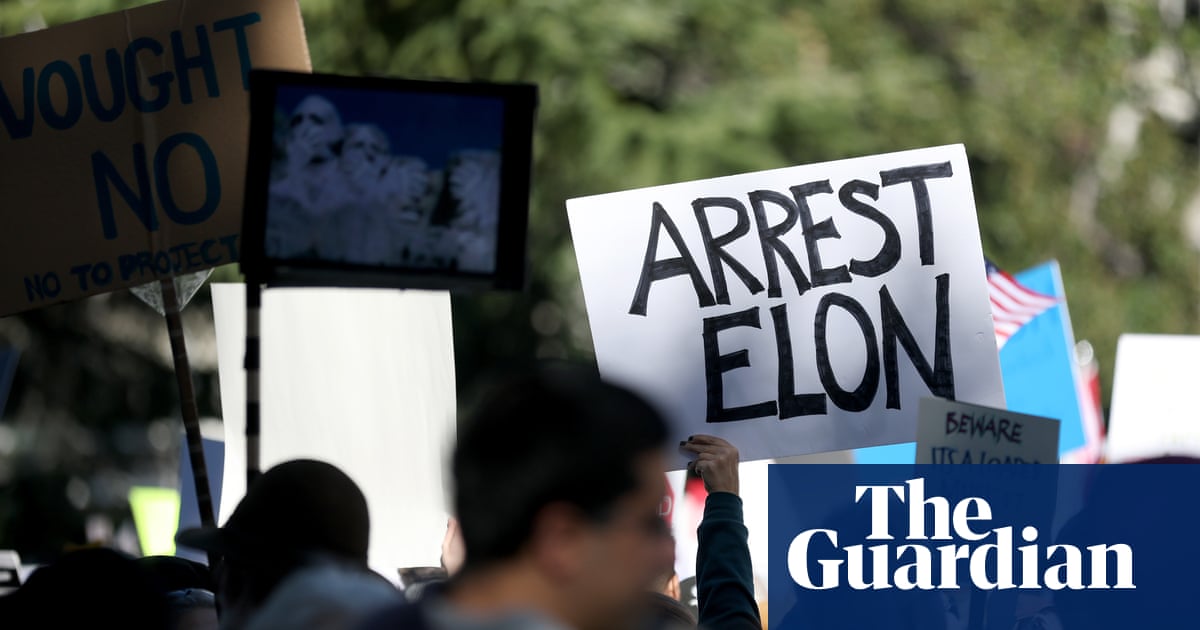The US supreme court may soon revive an obscure, pro-big business legal doctrine that could make it virtually impossible for the US government to develop new laws and regulatory rules that protect Americans.
The theory, called the “nondelegation doctrine”, could also potentially invalidate large pieces of bedrock American laws and protections put in place since the first Congress.
The case comes after the conservative court substantially curbed regulatory power in recent years, and the nondelegation doctrine is viewed by some as a potentially extreme power grab by unelected rightwing judges.
Nondelegation posits that the constitution prohibits the US Congress from giving power to federal agencies to make rules. Instead, Congress should essentially agree on and spell out most significant details in the laws it passes, which critics say is highly unlikely in a bitterly partisan and combative political era.
In the case before the supreme court, US Federal Communications Commission v Consumers’ Research, the latter challenged the FCC’s ability to issue a fee to cover the cost of providing broadband and telecommunication services in rural and low-income areas.
Nondelegation proponents say the fee amounts to a tax issued by unelected officials. But observers note Congress directed the FCC to provide service to the entire country, and set restraints in the law about how the agency can do that, and how it can raise funds. That makes the case a “poor vehicle” for pushing nondelegation, Farber said.
Much of the country, geographically speaking, could lose phone or internet service unless Congress steps in.
Should the court revive nondelegation, nearly every function of governance could be challenged: consumer safeguards against price gouging, limits on pollution, social security, food safety standards, clean water rules, sex offender laws, Medicare, union protections and far more. The doctrine is being pushed by major corporate trade groups from those in big pharma to big oil.
Nondelegation’s full revival “would create chaos”, said Michael Wall, chief litigation officer with the Natural Resources Defense Council, which previously filed an amicus brief on a potential nondelegation case.
“There are versions of the nondelegation doctrine that could be deployed to strike down a lot of the laws that protect Americans on everything that matters to them,” Wall added. “There would be constitutional challenges to large portions of the government’s work.”
Legal observers who spoke with the Guardian stressed that it is unclear how far justices might be willing to take the doctrine, if they touch it at all. But most of the court’s rightwing justices in recent years have expressed an interest in potentially reviving nondelegation, which was last applied nearly 100 years ago.
“It just depends on how radical they want to go,” said Daniel Farber, a University of California, Berkeley, constitutional law professor.
The doctrine’s opponents say the constitution gives Congress the authority to pass laws and delegate the process of implementing the laws’ details to federal agencies, with some clear limits. Despite claims from nondelegation supporters that the doctrine was once a bedrock principle in American governance, there are dozens of examples of the first and early Congresses granting power to administrative agencies.
In its case for reviving the theory, the conservative Federalist Society wrote that nondelegation creates a “deliberately difficult [lawmaking] process designed to ensure such laws reflect broad political consensus”.
The doctrine’s supporters also say nondelegation would force Congress to “do its job”, but that is a “bad faith argument”, because “Congress can’t pass a budget without a crisis these days”, Farber said.
Moreover, Congress members do not have the expertise or staff numbers to effectively flesh out laws and establish rules on highly complex issues, a task currently delegated to tens of thousands of federal staff.
after newsletter promotion
“This is really just a backdoor to deregulate everything,” Farber added.
Nondelegation was last applied in rulings during the 1930s when Franklin Delano Roosevelt’s New Deal created dozens of government programs and agencies during the Great Depression to pull the US economy out of freefall, and create a social safety net. A rightwing and pro-business supreme court killed Roosevelt’s proposals at every turn, citing the “nondelegation” doctrine in several cases.
In response, Roosevelt threatened to expand the court with liberal justices so the New Deal could survive legal challenges. The conservative justices relented, nondelegation faded into obscurity and Congress has since given authority to agencies to implement laws.
The idea of reviving the doctrine in recent decades percolated in conservative legal circles and became more mainstream with the ascent of rightwing judges. The court heard several cases in which it could have considered the doctrine, but did not. The FCC v Consumers’ Research case is the most direct consideration of nondelegation.
Even if the supreme court approves a lighter shade of nondelegation, it would embolden conservative lower court judges, observers say.
“As someone else said, conservative lower court judges have partied like it’s 1899, and they would start striking down every environmental law or whatever that they don’t like,” Farber said.
Nondelegation’s supporters have also argued the doctrine puts power back in the people’s hands because unelected officials within federal agencies have been making rules, but Wall said there is “irony” in that argument.
Elected Congress members have since the nation’s inception delegated rule-making power to agencies, and unelected judges would be taking the power from the elected legislators. If nondelegation is revived in a more extreme form, it would shift the balance of power among the three governmental branches that has been in place since the nation’s founding to the judiciary, Wall said.
“It would be stripping power away from the American public’s elected representatives in a really stark and stunning way,” Wall said.
Article by:Source: Tom Perkins












